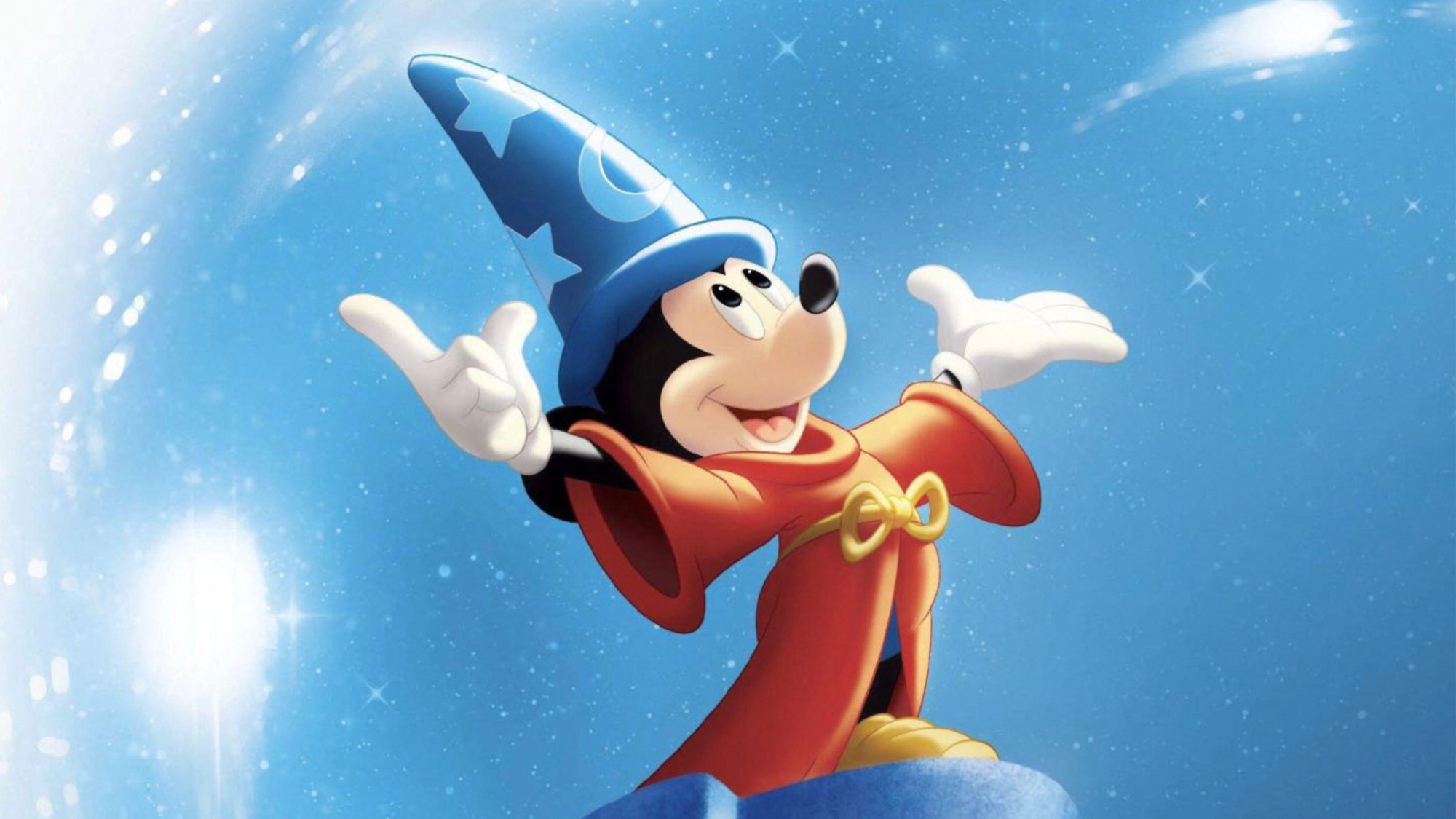What makes a good legacy sequel?
Why movie buffs have mixed feelings about legacy sequels


A free daily email with the biggest news stories of the day – and the best features from TheWeek.com
You are now subscribed
Your newsletter sign-up was successful
The box office success of Top Gun: Maverick has movie lovers looking back on other legacy sequels, whether they were beloved or bombed. Here's everything you need to know:
What is a legacy sequel?
A "legacy sequel" is a new entry in a long-dormant film franchise. According to IGN, characteristics of a legacy sequel can include "narrative and thematic preoccupation with the concept of legacy," a desire to deliver "nostalgic moments and fan service," the pairing of aging actors with fresh new faces, and an attempt to draw multigenerational audiences.
The Week
Escape your echo chamber. Get the facts behind the news, plus analysis from multiple perspectives.

Sign up for The Week's Free Newsletters
From our morning news briefing to a weekly Good News Newsletter, get the best of The Week delivered directly to your inbox.
From our morning news briefing to a weekly Good News Newsletter, get the best of The Week delivered directly to your inbox.
An early example of a legacy sequel is Martin Scorsese's The Color of Money (1986), which starred young hotshot Tom Cruise alongside Paul Newman, who reprised his role as pool shark Fast Eddie Felson from 1961's The Hustler. The same year The Color of Money was released, Cruise also starred in the naval aviation thriller Top Gun. Cruise's career has since come full circle. In the critically and commercially successful Top Gun: Maverick (2022), Cruise is the old-timer showing young hotshot Miles Teller the ropes.
Other legacy sequels — like TRON: Legacy (2010) — trickled in over the years, but in 2015 the dam broke. Star Wars: The Force Awakens and Jurassic World raked in $1.5 billion between them, while Creed and Mad Max: Fury Road each grossed nine figures. The deluge hasn't let up since.
Follow-ups to comedies like Dumb and Dumber and Zoolander, blockbuster action capers like Men in Black and Bad Boys, sci-fi franchises like The Matrix, and even art-house fare like Trainspotting have been lavished (and, in some cases, inflicted) upon audiences in great numbers.
What do legacy sequels say about American culture?
A free daily email with the biggest news stories of the day – and the best features from TheWeek.com
In his book The Decadent Society, Ross Douthat mentions the dominance of legacy sequels as an indicator of the "cultural and intellectual exhaustion" of contemporary America. "A society that generates a lot of bad movies need not be decadent; a society that just makes the same movies over and over again might be," Douthat writes.
As an example, Douthat cites Back to the Future (1985), in which the time-traveling Marty McFly terrorizes his father by impersonating Darth Vader — in 1955. A Zoomer couldn't play the same trick on his Gen X dad. They both grew up with Star Wars.
Writing for Movieweb, Richard Fink agrees that "there is an inherent cynicism in the concept of bringing a long-running franchise back with fan-favorite actors years later" as "an easy and cheap nostalgic gimmick." But, Fink argues, many legacy sequels "have embraced the concept to tell interesting, thoughtful stories" that "have moved the franchises forward" and "grapple[d] with the idea of nostalgia."
This line between regurgitation and re-examination can be difficult to walk. Some Star Wars fans criticized J.J. Abrams for the play-it-safe fan service he offered in The Force Awakens. Others accused Rian Johnson of treason for his more subversive approach to The Last Jedi. Either way, studios have little incentive to stop making legacy sequels. The two films — along with Star Wars spinoff Rogue One — topped the U.S. box office three years running.
What makes a legacy sequel work?
Of course, not all legacy sequels are guaranteed moneymakers. 2019's Terminator: Dark Fate was one of the biggest box-office bombs of all time, losing studios north of $100 million. Some viewers bristled at its preachy revisionism while others simply couldn't be bothered to turn out for what was, by one count, the fourth attempt to reboot James Cameron's franchise.
Legacy sequels "need to understand what made" the original film(s) "popular in the first place," writes Brandon Katz for Observer, while finding the "balance between old and new." A good legacy sequel, he argues, must "honor the past, but also chart its own path forward."
Even a good legacy sequel is not necessarily a profitable one. Blade Runner 2049 (2017) and The Shining sequel Doctor Sleep (2019), both follow-ups to 80s cult classics, failed to break even despite positive reviews. Audiences leaped at the chance for more Jedi and dinosaurs. Another stay at the Overlook? Not so much.
Sometimes, though, a legacy sequel succeeds on all fronts, charming critics, fans, and audiences alike. Top Gun: Maverick is one such unicorn. On Rotten Tomatoes, the film has a 99 percent audience score and positive reviews from 96 percent of critics. Mark Kennedy of The Associated Press said Tom Cruise's return to the cockpit is a "textbook example of how to make a sequel." Time's Stephanie Zacharek called it a "much better film" than the original.
So maybe decadence isn't all bad.
Grayson Quay was the weekend editor at TheWeek.com. His writing has also been published in National Review, the Pittsburgh Post-Gazette, Modern Age, The American Conservative, The Spectator World, and other outlets. Grayson earned his M.A. from Georgetown University in 2019.
-
 How the FCC’s ‘equal time’ rule works
How the FCC’s ‘equal time’ rule worksIn the Spotlight The law is at the heart of the Colbert-CBS conflict
-
 What is the endgame in the DHS shutdown?
What is the endgame in the DHS shutdown?Today’s Big Question Democrats want to rein in ICE’s immigration crackdown
-
 ‘Poor time management isn’t just an inconvenience’
‘Poor time management isn’t just an inconvenience’Instant Opinion Opinion, comment and editorials of the day
-
 Microdramas are booming
Microdramas are boomingUnder the radar Scroll to watch a whole movie
-
 Film reviews: ‘Wuthering Heights,’ ‘Good Luck, Have Fun, Don’t Die,’ and ‘Sirat’
Film reviews: ‘Wuthering Heights,’ ‘Good Luck, Have Fun, Don’t Die,’ and ‘Sirat’Feature An inconvenient love torments a would-be couple, a gonzo time traveler seeks to save humanity from AI, and a father’s desperate search goes deeply sideways
-
 The biggest box office flops of the 21st century
The biggest box office flops of the 21st centuryin depth Unnecessary remakes and turgid, expensive CGI-fests highlight this list of these most notorious box-office losers
-
 The 8 best superhero movies of all time
The 8 best superhero movies of all timethe week recommends A genre that now dominates studio filmmaking once struggled to get anyone to take it seriously
-
 Heated Rivalry, Bridgerton and why sex still sells on TV
Heated Rivalry, Bridgerton and why sex still sells on TVTalking Point Gen Z – often stereotyped as prudish and puritanical – are attracted to authenticity
-
 Film reviews: ‘Send Help’ and ‘Private Life’
Film reviews: ‘Send Help’ and ‘Private Life’Feature An office doormat is stranded alone with her awful boss and a frazzled therapist turns amateur murder investigator
-
 February’s new movies include rehab facilities, 1990s Iraq and maybe an apocalypse
February’s new movies include rehab facilities, 1990s Iraq and maybe an apocalypsethe week recommends Time travelers, multiverse hoppers and an Iraqi parable highlight this month’s offerings during the depths of winter
-
 The 8 best animated family movies of all time
The 8 best animated family movies of all timethe week recomends The best kids’ movies can make anything from the apocalypse to alien invasions seem like good, wholesome fun
